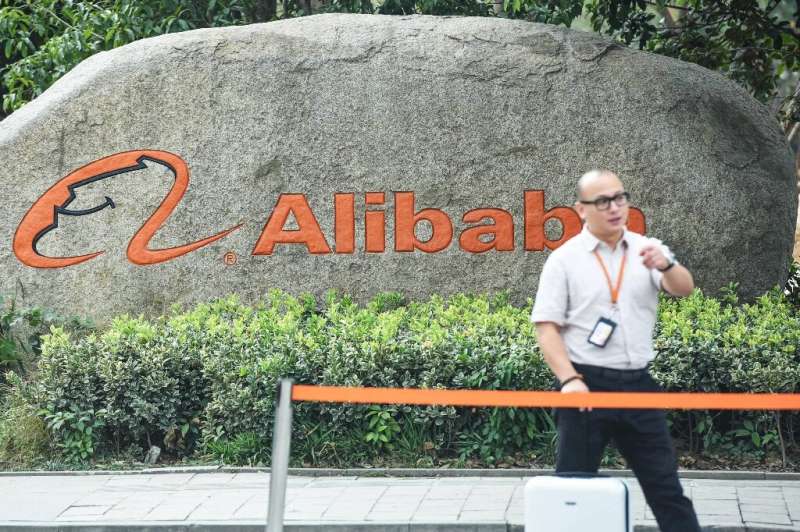Alibaba quarterly revenue flat for first time ever in June

Chinese e-commerce giant Alibaba reported flat revenue growth on Thursday for the first time ever, as the country grappled with an economic slowdown and COVID-19 resurgences kept consumers jittery.
Alibaba's performance is widely seen as a gauge of Chinese consumer sentiment, given its market dominance, and its revenue growth has slowed markedly over the past year.
Revenue came in at 205.6 billion yuan ($30.7 billion) in the April-June quarter, beating analyst expectations despite being slightly below the same period last year, following a decline in the company's China commerce segment revenue, Alibaba said.
The company has been grappling with growing competition and economic fallout from strict COVID restrictions that have battered consumer sentiment, pushed the unemployment rate up and tangled supply chains.
"Following a relatively slow April and May, we saw signs of recovery across our businesses in June," said Alibaba Group's chairman and chief executive Daniel Zhang in a statement.
"Despite the soft economic conditions, we managed to deliver stable revenues and narrowed losses in several strategic businesses by improving operating efficiency," he added in an earnings call.
The company's revenue growth was flat "primarily due to a decline in China commerce segment revenue" although this was offset by growth in the cloud segment, Alibaba said.
Many parts of China have faced harsh lockdowns in recent months, as officials struggled to stamp out the Omicron variant under the country's zero-COVID policy.
Shanghai, China's biggest city and a major economic hub, was sealed off for two months due to COVID-related restrictions during the quarter.
The firm cited "restrictions that resulted in supply chain and logistics disruptions in April and most of May" that bogged down performance in its China commerce sector, although there was a pick-up in demand in June during a popular shopping festival.
Its profit for the latest quarter stood at 22.7 billion yuan, down from 45.1 billion yuan a year earlier.
Alibaba has recently been building its international commerce businesses, such as Lazada in Southeast Asia and Trendyol in Turkey.
It has also shifted from its aggressive market expansion in the past, amid slowing growth.
Challenges
Apart from coronavirus curbs, Alibaba has been contending with a regulatory crackdown on China's tech giants and other challenges abroad.
US authorities have put the company on a watchlist that could see it delisted in New York if it does not comply with disclosure orders, causing its shares to slump.
The company is seeking a primary listing in Hong Kong which could allow it to access mainland China's vast pool of investors, a move that comes as Chinese tech firms trading in New York grow increasingly worried about regulatory action by US authorities.
Alibaba, a tech behemoth, has also seen its market value plummet after Beijing launched a sweeping crackdown in 2020.
In recent years, Chinese officials have taken aim at alleged anti-competitive practices by some of the country's biggest names, driven by fears that major internet firms control too much data and expanded too quickly.
This included a last-minute cancellation of a planned IPO by Alibaba's financial arm Ant Group, which would have been the world's largest public offering at the time.
Last week, a report said Alibaba co-founder Jack Ma plans to give up control of Ant Group as part of a strategy to appease Chinese regulators and revive the digital payments unit's initial public offering.
Following the latest results, Alibaba's US-listed shares rose 4.5 percent in pre-market trading.
China's economy expanded just 0.4 percent in the second quarter this year, logging its slowest growth since the initial coronavirus outbreak more than two years ago.
© 2022 AFP





















